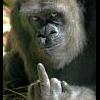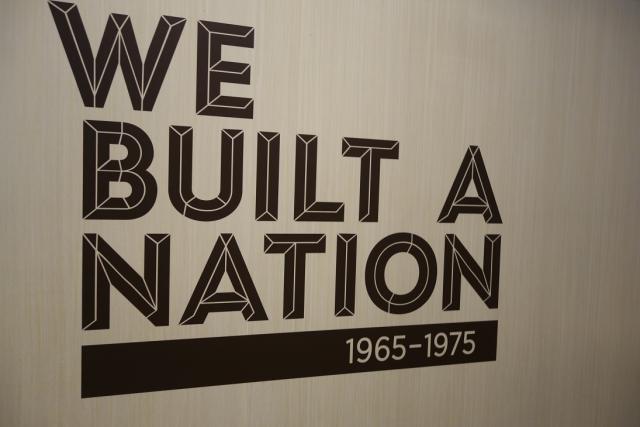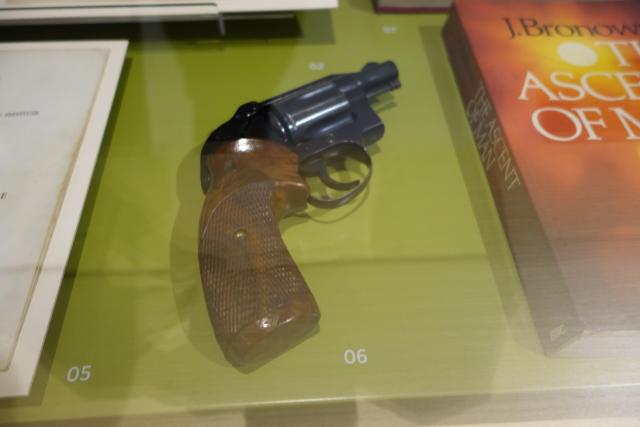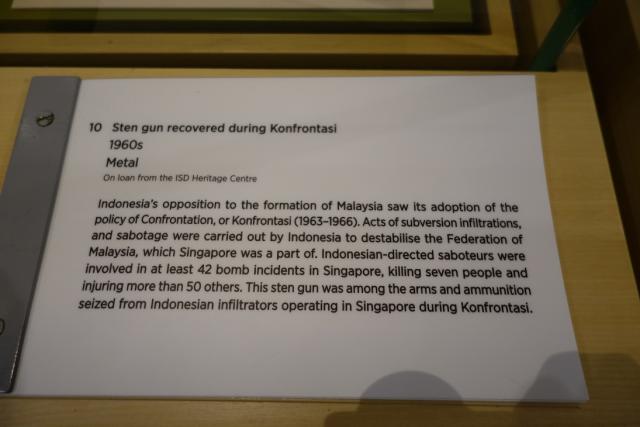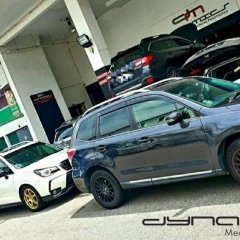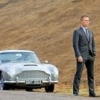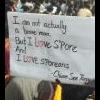Search the Community
Showing results for tags 'lky'.
-
http://www.straitstimes.com/news/singapore/more-singapore-stories/story/mr-lee-kuan-yews-oxley-road-home-be-demolished-20150412#xtor=CS1-10 Should it be demolished?
-
His form of late doesnt seem like world no 1 More like 10+ Uptick in form also thx to the training session wit Viktor Axelsen A well deserved win https://www.channelnewsasia.com/sport/singapores-loh-kean-yew-stuns-world-number-one-viktor-axelsen-bwf-world-championships-2377311 Lky will now advance into the round of 32 and face Austria’s Luka Wraber Good luck!
- 729 replies
-
- 15
-

-
.png)
-
No offence but I feel sad for Mr. Lee Kuan Yew, as he continues to be "milked" by the current government. What's next, a new $10 note in 2025 to mark his 10th death anniversary, or a special $80 note to mark his wedding jubilee with Mdm. Kwa? Source: https://www.channelnewsasia.com/singapore/lky100-lee-kuan-yew-commemorative-coins-unveiled-mas-3488726 SINGAPORE: A commemorative S$10 coin marking the 100th birth anniversary of Singapore's founding Prime Minister Lee Kuan Yew was unveiled by the Monetary Authority of Singapore (MAS) on Monday (May 15). Minted in aluminium bronze, the gold-coloured LKY100 coins will be available at face value by application. The coins will have a diameter of 30mm, making them about 22 per cent larger than the Third Series S$1 coins currently in circulation. "The coin pays tribute to his strategic vision, boldness and indomitable spirit that transformed Singapore from a regional trading port to a global manufacturing, business and financial hub, creating opportunities for all Singaporeans," MAS said in a news release. "The design features a portrait of Mr Lee Kuan Yew, accompanied in the foreground by the Marina Barrage, representing Mr Lee's vision to build a freshwater reservoir in the city, strengthening Singapore's water resilience," the central bank added, describing the design on the coin's reverse. "The backdrop is the skyline of the Raffles Place financial district, and two heritage buildings which have witnessed significant milestones in Singapore's history – Fullerton Hotel (formerly the Fullerton Building/General Post Office) and National Gallery Singapore (formerly the Supreme Court and City Hall)." In addition to the Singapore Coat of Arms, the front of the coin features Mr Lee's name, his years of birth and death, the words "100th Birth Anniversary" and a dual latent image that shows the year 1923 when viewed from one angle and the year 2023 when viewed from another. The coin was designed by local artist Weng Ziyan, whose previous works include banknotes commemorating Singapore's 50th year of independence, Singapore's bicentennial and the 50th anniversary of the Brunei-Singapore Currency Interchangeability Agreement. Applications for the coins can be made from Monday until Jun 9 via a dedicated application website. Only Singapore citizens and permanent residents can apply, and each applicant can apply for up to five coins. "If demand is high, applicants may not be allocated the quantity of coins requested, but can be assured of being allocated at least one coin," MAS said. Each applicant will be required to indicate their identity number, mobile phone number and preferred bank branch for the collection of the coins. No upfront payment will be requested. Successful applicants will pay for their coins when collecting them at their selected bank branches. Banks participating in the distribution of the coins include DBS and POSB, OCBC and UOB as well as the Bank of China, HSBC, Maybank and Standard Chartered. Those who require in-person assistance to submit their applications can approach any community club or community centre, or the ServiceSG centres at Our Tampines Hub and One Punggol. Successful applicants will receive SMS notifications from mid-August, and the coins will be available for collection from September. Coins that are not exchanged during the collection window will be made available for exchange at banks by the general public, including non-Singaporeans. The number of coins to be minted will be determined after applications close, MAS said. The commemorative coin was announced earlier this year as part of a series of initiatives to mark the centenary of Mr Lee's birth. The late Mr Lee, who also co-founded the ruling People's Action Party, was born on Sep 16, 1923. He died on Mar 23, 2015, at the age of 91.
-
Ain't sure the thread title still apt. 😀 https://www.straitstimes.com/sport/badminton-singapore-teens-nge-and-prajogo-attain-world-no-1-ranking-for-junior-men-s-doubles Hope these boys can progress successfully into the senior arena. Future look good for us.
- 14 replies
-
- 3
-

-
https://www.nytimes.com/2023/04/12/opinion/international-world/singapore-autocracy-democracy.html By Farah Stockman Do benevolent autocracies get better results than democracies? I’ve pondered this question since last summer, when I heard highly educated Kenyans tell me that democracy hadn’t brought the economic development they sorely need. They gushed about the way that Lee Kuan Yew, the founding father of modern Singapore, transformed his impoverished city-state into one of the wealthiest societies on earth in just one generation. Consider that in 1960, Singapore and Jamaica had roughly the same G.D.P. per capita — about $425, according to World Bank data. By 2021, Singapore’s G.D.P. had risen to $72,794, while Jamaica’s was just $5,181. It’s no wonder that Lee Kuan Yew has become a folk hero. It’s not hard to find people from South Africa, Lebanon and Sri Lanka praying for their own Lee Kuan Yew. Last month, President Biden hosted his second democracy summit and gave a speech about the epic global struggle between democracy and autocracy. Singapore — a U.S. partner rated “partly free” by Freedom House — was not invited. But Washington’s talking points about the imperative of democracy ignore a simple fact: Some autocrats are admired because they get results. While established democracies do better economically than autocracies overall, the handful of autocrats who focused on economic growth — rather than their own Swiss bank accounts — have managed to outperform fledgling democracies, according to Ronald Gilson, professor emeritus of law and business at Columbia University, who co-wrote a 2011 paper, “Economically Benevolent Dictators: Lessons for Developing Democracies.” Chile under Augusto Pinochet, South Korea under Park Chung-hee and China under Deng Xiaoping stand out as countries that achieved wholesale economic transformation, while weak democracies stagnated. The paper, which was co-written by Curtis Milhaupt of Stanford Law School, spells out why benevolent authoritarians have an easier time plugging their countries into the global economy. Elites tend to resist big changes that would cut into their own bottom lines, even if those changes are good for the country. Autocrats have more tools to get them on board. An autocrat’s word can convince job-creating investors that their businesses will be protected, filling the void of a shaky court system. In a benevolent autocracy, legitimacy often comes not from elections but from the ability to show material improvements in people’s lives. In a democracy, leaders are often too busy fending off political challenges to make grand economic plans. They are frequently voted out of office before they can see those plans through. To win elections, politicians make short-term promises — like cutting taxes while increasing benefits — that don’t always make economic sense in the long run. But benevolent autocracies have fatal flaws, too. Benevolent dictators are hard to find. There’s no guarantee that they will stay benevolent or that their successors will be as competent. After a country successfully transitions its economy, the advantages of this system seem to fade. But by then, a system of nearly unchecked power at the top has been entrenched. Singapore is a case in point. Lee Kuan Yew contended that people don’t pine for democracy. First and foremost, he said, “they want homes, medicine, jobs, schools,” according to the 1998 book “Lee Kuan Yew: The Man and His Ideas.” He provided those things by pairing business-friendly policies from the West (predictable courts, low taxes, zero tolerance for corruption and an embrace of meritocracy) with socialist-leaning policies from autocracies (heavy government involvement in economic planning and little tolerance for dissent). He created a vast system of public housing, where about 80 percent of Singaporeans currently live. People buy and resell long-term leases to government-built apartments with money the government essentially forced them to save. Singapore holds elections, but the ruling party, which controls much of the media and a host of lucrative jobs, has remained in power since independence. Anyone who has visited the city-state of nearly six million people has seen how much cleaner and safer and more orderly it feels than the United States. Its airport doubles as a high-end mall. Public gardens bloom free of the litter, pickpockets or homeless encampments that have become familiar sights in U.S. cities. Robberies are so rare — and surveillance so pervasive — that some high-end bars don’t even lock their doors at night. Ferraris and Lamborghinis are everywhere, as if the slogan “a chicken in every pot” had turned into “a sports car in every parking space.” But now, eight years after the death of Lee Kuan Yew, Singapore is at a crossroads. It’s being run by his eldest son, Prime Minister Lee Hsien Loong, who leans heavily on his father’s legacy. Elections for the largely ceremonial post of president are expected in September and parliamentary elections are due by 2025. The prime minister’s potential successor has already been picked. But the ruling People’s Action Party has never looked so vulnerable. Critics say Singapore is becoming more like a plutocracy, in which well-paid yes men with the right connections to the Lee family rise up the ranks. Today, Singapore is a place where forklift operators can face jail time for taking one-dollar bribes but executives from the Singaporean conglomerate Keppel — who paid millions in bribes, according to the U.S. Justice Department — got off with “stern warnings.” (Officials in Singapore have said that they didn’t have enough evidence to take the case to court.) The trouble is that the system requires someone like Lee Kuan Yew at the top — strict and charismatic, as Michael Barr, author of “Singapore: A Modern History,” told me. “But no one who has that political skill would ever rise to the top today because that person would be regarded as a threat,” he said. Perhaps the clearest sign that something in Singapore has gone wrong is the fact that Lee Kuan Yew’s youngest son and one of his grandsons say they are now living in exile, fearful that they would be arrested if they ever returned. “My uncle doesn’t want competing claims to legitimacy,” Lee Kuan Yew’s grandson Shengwu Li told me over a cup of tea in Cambridge, Mass. “Authoritarian systems don’t survive by taking chances. If they think there’s a 5 percent chance I’ll be a problem for them, they want that to be zero.” The irony is that Mr. Li, a 38-year-old assistant professor of economics at Harvard who was just awarded a top honor in his field, doesn’t have political ambitions. Soft-spoken and cerebral, he says he’s happy working on his theorems in a place where nobody gives him special treatment because he’s related to Lee Kuan Yew. After 10 years studying at Oxford and Stanford, he got used to certain freedoms. In the summer of 2017, while he was visiting his parents in Singapore, he wrote comments in a private Facebook post that criticized the government for using the courts to silence its critics. The government is “very litigious and has a pliant court system,” he wrote. Soon after, he got a tip that he was about to be prosecuted for it. He hurried back to the United States. Even during the Trump administration, which was known for its harsh treatment of immigrants, he felt relieved to land on American soil because he knew there were independent judges, he told me. He was convicted in absentia in Singapore for scandalizing the judiciary and fined $15,000, which bars him from running for Parliament for five years. Last month, officials in Singapore announced an ongoing police investigation of Shengwu Li’s parents, who are accused of manipulating the then-90-year-old Lee Kuan Yew into changing his will and lying about it afterward. The accusation stems from a simmering disagreement over the fate of the family home, which Lee Kuan Yew said publicly at times that he wanted demolished after his death. Lee Hsien Yang, Lee Kuan Yew’s youngest son, says he has been fighting to honor his father’s wish not to have a cult of personality built around the house. But he says his elder brother, the prime minister, wants to preserve the house as a national monument to bolster his own political legitimacy. Lee Hsien Yang spoke out publicly against his brother, only to get hit with an investigation. Eventually, he fled the country, like his son. It seems to be an example of what Kenneth Paul Tan, a Singaporean professor of cultural studies, calls the “politics of evermore sophisticated bullying.” At its core, the fight isn’t about a house or a will. It’s about the future of Singapore. “The institutions in Singapore, whether it is the judiciary, the civil service, the army, the institutions of higher learning, have all gradually come under direct control in a way that stifles independent thinking and challenge,” Lee Hsien Yang told me. Lee Kuan Yew would solicit different views and occasionally change his mind, he said. “Today, the Singapore authorities no longer have people who would challenge the system to say, ‘Here’s my view. I don’t think you are doing the right thing.’ They are too well-paid.” (Ho Moon Shin, a government spokesperson, denied that Lee Hsien Yang and Shengwu Li are in exile, saying they are traveling on Singaporean passports and are free to return home. She also said Prime Minister Lee Hsien Loong recused himself from the cases involving the family house.) Lee Hsien Yang and his son Shengwu Li avoided politics for most of their lives, but since the feud over the house burst into public view, both have voiced sympathy for the political opposition, lending the legitimacy of that crucial family name. Yet their ability to help the opposition has been curtailed by the accusations against them. The episode has exposed the cracks in Singapore’s celebrated system. If Lee Kuan Yew’s son and grandson can feel compelled to flee, what can happen to ordinary people? Political scientists weren’t sure that Singapore’s highly successful system would outlast Lee Kuan Yew. By the end of his life, even the great man himself spoke of preparing for the day when his party would lose power. That’s the thing about benevolent autocracies: They tend to expire. They either cease to be autocracies — as happened in South Korea and Chile — or they cease to be benevolent.
-
- link to video deleted - young generation whom don't know much about singapore history or experience "3rd world" before we become "1st world" just believe media view that is pleasing to their ears and liking
-
http://www.channelnewsasia.com/news/singapore/for-sg50-a-new-range-of-s/2057720.html?cid=fbsg SINGAPORE: Prime Minister Lee Hsien Loong unveiled a set of commemorative currency notes to celebrate SG50 on Tuesday (Aug 18). The set includes a S$50 polymer note and five S$10 polymer notes. The notes’ designs drew inspiration from significant milestones and achievements in Singapore's history, the multiracialism that defines Singapore as a nation and the values and aspirations that underpin Singapore's progress. For example, the S$50 note highlights Singapore's history, transformation and future. It shows the late Mr Lee Kuan Yew shouting 'Merdeka!' - the rallying cry of Singapore's independence struggle. However, the current Prime Minister said: "Even as we reflect on our past we must also look to the future." Hence the addition of a note depicted Singapore's latest new town - Punggol - which he said symbolises the continuing renewal of our homes and communities. Mr Lee said this is Singapore's responsibility: To build on the legacy of our pioneers and carry on their vision to make Singapore our best home. The notes make use of the colour gold, reflecting Singapore's jubilee. Both the S$50 and S$10 notes have security features that are the first of their kind in the world to be used on a currency note. The security stripe in the S$50 note has a unique see-through feature with image movement effects that give depth to the image of Mr Lee Kuan Yew. The SG50 logo also has colour-switching effects, with the year flipping from 1965 to 2015. The notes were designed by four local artists and designers. The public can exchange the SG50 commemorative notes at face value at branches of nine major retail banks from Aug 20. They include DBS Bank/POSB, Oversea-Chinese Banking Corporation, United Overseas Bank, Citibank, Standard Chartered Bank, Bank of China, HSBC, Malayan Banking Berhad, Industrial and Commercial Bank of China. To ensure that everyone has an opportunity to exchange the SG50 commemorative notes, there will be a quota of five sets of notes per transaction per individual. BANKS EXTEND HOURS United Overseas Bank (UOB) and DBS said on Tuesday that they will be extending banking hours and setting up dedicated queues for the exchange of the commemorative notes. Both banks will also provide priority assistance for the elderly and those with special needs. UOB will deploy more customer service officers to help answer questions and to take orders from customers who are in queue. At some DBS/POSB outlets located near food and beverage outlets, note-exchangers will be offered complimentary beverages in the event that their wait is longer than expected, the bank said. Banking hours at all full-service DBS/POSB branches will be extended until 8pm on weekdays from Aug 20 for two weeks. For UOB, 26 branches located in heartland areas and key town centres will have their hours extended to 7pm on weekdays during the first week of the exchange period. UOB customers can also reserve their commemorative notes online at www.uob.com.sg/sg50notes from Aug 20 onwards and collect them later at a pre-determined branch of their choice, UOB added. - CNA/ek
- 169 replies
-
- 10
-

-
Lee Kuan Yew’s Two Younger Children File Case on Interview Deal http://www.bloomberg.com/news/articles/2015-09-22/lee-kuan-yew-s-two-younger-children-file-case-on-interview-deal Lee Kuan Yew’s two younger children initiated court action in Singapore relating to an agreement between their late father, the city’s first prime minister, and the government. Lee Wei Ling and Lee Hsien Yang, executors of the elder Lee’s estate, filed a court application on Sept. 2, according to a record with the Singapore High Court. Their father’s agreement related to the "custody and use" of interviews given by the former premier to the government’s Oral History Department, according to a statement by the Attorney-General, the respondent. “The government will establish the proper interpretation and status of the agreement before the court,” it said in the statement. Further details of the case weren’t immediately available, and Lee Hsien Yang declined to comment. Lee Wei Ling wasn’t immediately available to comment. The Republic of Singapore’s founding father, Lee Kuan Yew, died on March 23 at the age of 91, triggering a nationwide outpouring of grief. More than a million people waited for as long as 10 hours to pay their last respects. Lee’s death and celebrations to mark Singapore’s 50th year of independence helped the ruling People’s Action Party, helmed by eldest son Prime Minister Lee Hsien Loong, extend its more than five-decade rule at the Sept. 11 election. The case is Lee Wei Ling, Lee Hsien Yang v Attorney-General, OS816/2015. Singapore High Court. Anyone heard anything about this ???
- 70 replies
-
- 3
-

-
- lee kuan yew
- lky
- (and 6 more)
-
For those who have yet to visit the exhibition in person or are maybe overseas and cannot make it down. http://www.nhb.gov.sg/eo/In%20Memoriam%20Lee%20Kuan%20Yew/ http://www.channelnewsasia.com/news/singapore/memorial-exhibition-for/1866078.html SINGAPORE: A memorial exhibition at the National Museum of Singapore dedicated to the late founding Prime Minister Lee Kuan Yew has drawn over 135,000 people since it started on March 25. In Memoriam: Lee Kuan Yew has seen its run extended twice due to popular demand, but the exhibition will close at the end of June. Those who have yet to visit, will be able to do so online. The National Museum has created a virtual interactive tour with a 360 degree view of the items and posters on display. Mr Daniel Tham, curator at the National Museum, said the virtual walk-through recreates the experience of actually being in the museum. "That includes the images that are on display, the caption and text panels and you also get to listen to audio speeches delivered by Mr Lee," he said. As a bonus, those who tour the exhibition online can look inside Mr Lee's famous red box briefcase which he used as to carry speeches, documents and readings. "We took many many still photos of a single spot, we put them together, then we developed it and packaged it," said Mr Alvin Neo, director from Zwaan, which produced the interactive virtual tour. The virtual exhibition is available on the National Museum's website. - CNA/ly
- 1 reply
-
- 3
-

-
- lee kuan yew
- lky
-
(and 4 more)
Tagged with:
-
Chinese President Xi Jinping will visit Singapore next month (November 2015), capping a year-long series of celebrations to mark 25 years of diplomatic ties as well as meetings to deepen bilateral cooperation.Singapore President Tony Tan Keng Yam and Prime Minister Lee Hsien Loong said they looked forward to Mr Xi's state visit.... http://www.straitstimes.com/singapore/xi-to-visit-spore-to-mark-25-years-of-diplomatic-ties Xi had visited Singapore several times over the years, with most recent in 2010 when he met LKY to unveil a bust of Deng Xiaoping.
-
http://www.channelnewsasia.com/news/singapore/bilahari-kausikan-on-the/2235302.html Sent from Channel NewsAsia Android app. SINGAPORE: Prime Minister Lee Hsien Loong has posted on Facebook a speech by Ambassador-at-Large Bilahari Kausikan, which was delivered on Oct 31, when Fitzwilliam College of Cambridge University held a conference on the legacy of the late Mr Lee Kuan Yew. Below is PM Lee's post in full, including the speech by Mr Kausikan: Last Saturday, Fitzwilliam College (my father’s old college) of Cambridge University held a conference on the legacy of Mr Lee Kuan Yew. Ambassador-at-Large Bilahari Kausikan spoke at the event. He recounted his personal experience working with Mr Lee, and made telling points about the external challenges that a small country in Southeast Asia will always face. I found it well worth reading, and hope you will too. - LHL Ambassador-at-Large Bilahari Kausikan spoke at a Conference on the legacy of Lee Kuan Yew and the future of Singapore at Fitzwilliam College, Cambridge, on 31 October 2015. Thank you for inviting me to join you in paying tribute to the memory and legacy of Mr Lee Kuan Yew. My generation of Singapore Foreign Service officers were privileged to have had the opportunity to work with Mr Lee and his comrades: Dr Goh Keng Swee and Mr S Rajaratnam. These three men defined the essentials of our foreign policy. Their ideas were formed by the imperatives of survival in the less than benign environment in which Singapore found itself on 10th August 1965, the morning after what was politely termed ‘Separation’. My colleagues and I learnt our trade from them. We did so in very humble capacities: taking notes at their meetings or seeing to the necessities of their travels, but still privileged to observe them at close quarters and absorb something of their modes of thought and operating style. It was a unique apprenticeship. Then as we assumed more senior positions, we came to understand a little more of their considerations by sitting-in on their policy discussions and even occasionally contributed our mite to their decisions. Some of us had studied international relations as an academic subject before joining the Foreign Service. But after 35 years, I have concluded that any resemblance between what I had studied and what I eventually did for a living was purely coincidental. Our real education in the realities of the diplomacy of a small country only started when our professional lives were touched, however tangentially, by Mr Lee and his comrades. The most valuable thing they imparted to us was a cast of mind. Mr Rajaratnam, our first Foreign Minister, has described his first meeting with the international press as Foreign Minister. It was only a few days after we had independence thrust upon us. Relations with Malaysia were fraught with racial tension; Sukarno’s Indonesia was still fighting an undeclared war against us and to our north in Indochina, the Cold War had turned hot. The newsmen were braying for information on how newly independent Singapore would conduct itself. ‘What’, Mr Rajaratnam told us he asked Mr Lee, ‘shall I tell them?’ ‘Just wear a tie, Raja”, was the answer, ‘you’ll think of something’. Big countries may delude themselves about being always in control of events. Small countries cannot afford such illusions. For small countries, foreign policy is usually a series of not always neat or consistent improvisations to a messy and unpredictable reality. The future can at best be only dimly glimpsed and in any case cares not a whit for your concerns. So you must pragmatically adapt yourself to it. One must of course set goals. But having done so, more often than not the most one can do is keep a distant star in sight as one tacks hither and tither to avoid treacherous reefs or to scoop up opportunities that may drift within reach. Successful navigation requires a clinical – indeed cold-blooded – appreciation of the world as it is and not as you may wish it to be. This is harder than you may think. Diplomacy is an area of human endeavour that is more than usually susceptible to self-deception and wishful thinking. Mr Lee and his comrades were not devoid of idealism. Singapore as it is today would not otherwise exist. They risked their lives to make it so. But idealism must be rooted in a hard-headed understanding of the realities of human nature and power. Without power nothing can be achieved. And even with power not everything desirable will always be feasible. No matter how fervently one may wish that they may be liberated from the surly bonds of earth, pigs are never going to sprout wings and fly. Understanding requires information. Mr Lee had intense intellectual curiosity. He sought information without regard for hierarchy. He was tolerant of alternate views or at any rate, he was tolerant of the young and brash desk officer as I then was who, too green to know that the tiger is dangerous, ventured on occasion to argue with him. The tiger’s roar is fearsome and its fangs are sharp. Mr Lee sometimes tried to intimidate you into agreement. But if you stood your ground with reasoned arguments, he listened even if he did not agree. And I am here to tell the tale. Mr Lee and his comrades were impatient of complexity for complexity’s sake; for the sake of showing off how clever one was. He did not suffer fools. If he sought a view, it was to be taken for granted you had something useful to say and would say it in the fewest possible words. And if you didn’t know, say so. What Mr Lee and his comrades possessed to a greater degree than anyone else I have ever met, was an uncanny ability to zero into the core of even the most complicated problem or situation. They wielded Occam’s razor with great intellectual ruthlessness, slashing through the pious obfuscations which too often shroud international issues. Margaret Thatcher once said of Mr Lee: ‘He was never wrong’. That is of course, not true. Nobody can be always right, particularly in international affairs where most of the time most of the factors are going to be unknown or only partially known and where even the effort to know may change what you are trying to know But Mr Lee and his comrades were never shy about changing their minds. Again this is harder than you may think. Too often vested interests, stubbornness or just plain pride stands in the way. Too many people believe their own propaganda. Mr Lee and his comrades avoided this most common of pitfalls because their laser-like focus was always the national interest of Singapore. And they never confused ideology with interest. Diplomacy is not all about being pleasant or making oneself agreeable. It is about defending and advancing the national interest, preferably by being pleasant and agreeable, but if necessary by any appropriate means. In this respect, having to stand your ground in the face of the tiger’s roar – and in the shadows of diplomatic politesse lurk many wild beasts – was another valuable lesson. This is particularly so in Southeast Asia, where majority Chinese Singapore which organizes itself on the basis of multiracial meritocracy, is something of an anomaly. We live in a region where the Chinese are typically a minority and not a particularly welcome one, and where our neighbours organize themselves on the basis of very different principles. Perhaps Mr Lee’s greatest mistake was, during the period when we were part of Malaysia, to underestimate the lengths to which the Malay leadership in Malaysia would go to defend ‘Ketuanan Melayu’ – Malay dominance. It was not a mistake that he or any of our leaders ever made again. The basic issue in Singapore’s relations with our neighbours is existential: the implicit challenge that by its very existence a Chinese majority Singapore organized on the basis of multiracial meritocracy poses to systems organized on the basis of different and ultimately irreconcilable principles. That we have the temerity to be successful, adds to the offence. None of this means we cannot cooperate with our neighbours: we must, we can and we do. But we must do so from a position of strength. Mr Lee was a lawyer and had a deep belief in the rule of law. Yet as a former Chief of the Malaysian Armed Forces has recounted, Mr Lee told him: “if PAS comes into power … and tries to meddle with the water in Johor Bahru, I’ll move my troops in. I will not wait for the Security Council to solve this little problem.” But Mr Lee also once told an Israeli General who had helped start our armed forces that Singapore had learnt two things from Israel: how to be strong, and how not to use our strength; meaning that it is necessary to get along with neighbours and no country can live in perpetual conflict with its neighbours. But we are different and we must remain different to survive. Small countries have no intrinsic relevance. To small countries, relevance is an artefact created by human endeavour and having been created, must be maintained by human endeavour. To remain relevant we cannot be ordinary. We cannot be just like our neighbours. We have to be extraordinary. Yet being extraordinary does not always endear us to our neighbours. The management of this paradox lies at the heart of our foreign policy and prescribes our most fundamental approaches: maintaining balance in Southeast Asia by facilitating the engagement of all major powers in our region, while fostering regional cooperation through ASEAN and maintaining our edge and keeping our powder dry. Singapore and Southeast Asia in 2015 is obviously not the same as Singapore and Southeast Asia in 1965. But some things do not change: our geopolitical situation and how our neighbours chose to organize themselves. The parameters of choice for small countries are never overly broad. The approach that Mr Lee and his comrades bequeathed to my generation of Foreign Service Officers and which we have tried to impart to our successors, still serves us well. Our environment is still complicated and perilous. The US and China are competing for influence with a greater than usual intensity as they grope towards a new accommodation with each other and the region. Malaysia is on a political trajectory that has heightened racial and religious tensions and may well lead to violence. The haze that regularly envelopes Southeast Asia is a reminder that post-Suharto Indonesia is still an incoherent and rent-seeking polity which has yet to reach a stable political equilibrium. The key challenge is internal: that a new generation of Singaporeans will take the achievements of Mr Lee and his comrades for granted as the natural order of things and be persuaded that we are no longer vulnerable. Some opposition politicians and their fellow travellers among the intelligentsia have tried to do just that. They either do not understand their own country and region or place their ambitions above the national interest. Fortunately, as the results of our recent General Election have demonstrated, the majority of my compatriots do not believe them
- 23 replies
-
- 4
-

-
- ambassador at large
- bilahari
-
(and 5 more)
Tagged with:
-
A new exhibition at the National Museum, which is free for Singaporeans and Permanent residents. It houses more than 100 artefacts, many belonging to the late Mr Lee Kuan Yew, from his Oxley Road home. The exhibition is called 'We Built A Nation" on the ground floor of the National Museum. This revolver is cool. And Mr Lee's will on his house to be demolished. They even had a Sten gun recovered during Konfrontasi. A suggested pledge, by S Rajaratnam. The final version is a bit different from his suggestion. In this first video, just a quick walkthrough to show you that the Exhibition is not very big, however, you could easily spend an hour or so going through the various exhibits. Am working on the other video which takes a closer look at some of the artefacts.
- 2 replies
-
- 1
-

-
- lky
- lee kuan yew
-
(and 6 more)
Tagged with:
-
FREE RED LKY tribute Decal / We Love SG50 car Decal Giveaway (20th August 2015) Thursday With many requests from public. We will distribute FREE SG50 and Red LKY tribute CAR decals again tomorrow at 12pm onwards till stock last. FREE of charge. 20 August 2015, Thursday 12pm till 4pm only It's a sticker so it can be applied on any surfaces. Make your trip down DM2 Kaki Bukit tomorrow Dynamics Mechanic 2 Call us at 63416164 (Synergy@KB. 25 kaki bukit rd 4. #01-36) For more updates, like us on Facebook :- Www.facebook.com/dynamicsmechanic
-
*****RED FREE LKY Tribute Decal ******* With requests from public again. We might distribute the FREE red tribute decals soon. Please comment if you support and we will need to see the demand response for it before we determine the campaign. Give us a page like if you have not, for lastest updates on the distribution dates :- Www.facebook.com/dynamicsmechanic Www.facebook.com/dmvinyl Like this post till 1000 likes and we will start the production. Please share this post out. We will need to see the response before we determine the free campaign again. Thanks.
-
To pay tribute to the Late Mr Lee Kuan Yew, Dynamics Mechanic and Vinyl Mechanic are ready to give away tribute car decals and at no charges at all. Please make your way to our Kaki Bukit Branch to collect it. Per Car Per Decal. The car decals are ready for FREE collection.A tribute gesture from Dynamics Mechanic & Vinyl Dynamics to the Great SG Founder Mr Lee. Collection Venue : Synergy@KB 25 kaki bukit rd 4, #01-36 dynamics mechanic - vinyl dynamics Tel : 6341 6164 10am till 530pm Like us at : www.facebook.com/dynamicsmechanic for more updates
- 77 replies
-
- 33
-

-
*** Signature Gold Edition LKY Tribute Decal *** ====================================== Our very own DM tribute to the Late Mr LKY. GOLD Signature Edition of LKY tribute decals. Let's get a 1000 likes on this post to make 1000pc for FREE distribution. You can stick the Gold Signature limited edition on any surfaces you like, not only for cars. Please like our page for updates n annoucement, ( you may Un-like after the event) :- www.facebook.com/dynamicsmechanic www.facebook.com/dmvinyl Lets generate the 1000 likes on this post to determine how many we make.
-
Hi all, these are the places whereby you can get free LKY decals =) 1) Dynamics Mechanic Garage - Vinyl Dynamics Synergy @ KB25 Kaki Bukit Rd 4, #01-36 S417800 Tel: 6341 6164 2) Wrapstyle 8 Kaki Bukit Avenue 4 #05-01/02 Premier @ Kaki Bukit Singapore 415875 3) CarbonRevo - no more stocks Please add on if you know other places that give out free LKY decals
-
I saw fireworks on last Sunday night which was the day of Mr LKY.s funeral. I am living in the western side of Singapore and the fireworks was in the north direction. I can even hear the sound. Anyone knows where did the fireworks come from?
-
This is for those who only knows him as PM Lee's "albino son". He is more than that. Here is his interview and some may be surprised just how well he speaks eventhough he, besides being albino, also suffers from Autism. https://www.youtube.com/watch?v=_gtpZpdxZEs That may partly explain why he seems to be LKY's closest grandchild, having lost his biological mother when only 19 months old. Yipeng was often seen comforting his grandpa during his grandma's funeral in 2010..and then appearing by himselfs at SGH to visit the dying LKY. Now, he bears his grand father's photo during the procession. As LKY was often quoted, "That's life.."
- 82 replies
-
- 16
-

-
RIP MM Lee Kuan Yew. Thank you for everything.
- 1,821 replies
-
- 34
-

-
SINGAPORE: Prime Minister Lee Hsien Loong paid tribute to his late father, Mr Lee Kuan yew, at the private ceremony in the Mandai Crematorium on Sunday (Mar 29). His eulogy, in full, is as follows: Family and friends, we are gathered here to say our final farewells to Papa Mr Lee Kuan Yew. After the formalities of the Lying in State and the State Funeral Service, in this final hour Papa is with his family, his friends of a lifetime, his immediate staff who served him loyally and well, his security team who kept him safe and sound, and his medical team who took such good care of him. So much has been said about Pas public life in the past few days. His public life is something we share with all of Singapore, with the world. But we were privileged to know him as a father, a grandfather, an elder brother, a friend, a strict but compassionate boss, the head of the family. Actually, Pa was the head of two families. As the eldest son, from a young age he was effectively head of his household, helping his mother Mak to bring up his younger brothers and sister. He remained close to them all his life. To my uncles and aunts, he was always Kor, never Harry. Sai Sok (Suan Yew) would have him over to dinner every Christmas, and Ku Cheh (Monica) would cook him his favourite dishes, and teach his cook how to do them, almost to the same standard as hers. "Papa made it a point to attend the Chinese New Year reunions of the extended Lee family every year, even till last year, to catch up with his siblings, to meet his nephews and nieces, and later grand-nephews and grand-nieces. I think there are a few great-grandnephews and nieces, but I dont think theyve met yet. Pa was also head of his own family my mother and the three children. He had plunged deep into politics by the time we arrived. In fact, the day I was born, when he visited Mama and the new baby in Kandang Kerbau Hospital, instead of talking about the new baby, he told her how he was going to represent the postmens union in their dispute with the government. This was the postmens strike which first made his name and launched him into active politics. "So day to day Ma ran the household, brought us up, saw to our schooling. But Pa set the tone, tracked our progress, and made the big decisions. He sent us to a Chinese school; he started us on Malay lessons with Cikgu Amin; he encouraged Yang and me to take up SAF Scholarships, to serve the nation; he persuaded Ling to become a doctor instead of a vet. He set us on the path to make our own marks in the world, and we are grateful. We are also grateful that Pa guided and nurtured us to grow up into normal, well-adjusted people, even though we were the Prime Ministers children, always in the spotlight, and in every danger of being spoilt, indulged, and led astray. He and Ma decided that we would stay in Oxley Road and not move to Sri Temasek, lest we grow up thinking that the world owed us a living. He made sure we did not get the wrong ideas no inflated sense of self; never to be inconsiderate to others; not to throw our weight around. "We may not always have done it right, but we were never in any doubt as to what was the right way to behave. He took pride in us children. When I learned to ride a bicycle, he was there. Once when I was just getting the hang of balancing on two wheels, he pushed me off from behind to get me started. I pedalled off across the field, thinking that he was still supporting and pushing me. Then I looked back and found that actually he had let go, and I was cycling on my own! He had let go. He was so pleased, and so was I. Like all good fathers, Pa continued to be there for us, even after we grew up. When Yang and I got married, he wrote us long and thoughtful letters sharing advice on how to make our marriages successful. Precious lessons drawn from his own long and happy marriage with Ma. After Ming Yang died, and especially before I remarried, he and Ma spent time with Xiuqi and Yipeng, then still infants, to fill the gap and to help to bring them up. They took them for walks after dinner every night in the Istana. He was not an indulgent grandfather, but a loving one. There is a photo of Papa with the four grandsons, who were then toddlers, blowing soap bubbles in the garden in front of Sri Temasek. When I was undergoing chemotherapy for lymphoma, Pa once rang up all the way from the Philippines. He was on an official trip. I rang back. I thought it was something important. But actually he called to say he had arranged to send me some durians. He wanted to make sure I was properly nourished during my chemotherapy. Pa was happy that all three children grew up to be successful and responsible people, contributing to society in our different ways. A few months after I became Prime Minister, he wrote me a letter on his Minister Mentor letterhead. I think it was the only letter I received from him with that letterhead. It read: These are mock-ups of my Christmas and New Year cards for this year 2005. The photograph after the swearing-in at the Istana records a memorable evening in my life. Have you any amendments or comments? "The photo was of me shaking hands congratulating him, I as the new Prime Minister and he as the new Minister Mentor, and the President, Mr S R Nathan, looking on. Naturally I replied that I agreed and had no amendments. He was proud of his son, but he wanted to do things in the proper way, as always. He continued to teach us lessons in life even in his later years. We learnt from watching him grow old with Ma. She meant the world to him, as he to her. They delighted in each others company. After Mas stroke in 2003, he nursed her back to health, encouraged her to exercise and stay active, and continued to take her on trips abroad. He even learnt to measure her blood pressure using a traditional sphygmomanometer and stethoscope, and faithfully did so twice a day every day, and email her results to her doctors. "He would tell her: Life is an endless series of adjustments. As you grow older, you adjust. Think how lucky we are and how much worse off we could be. Always look on the bright side of things. Mas passing five years ago was a huge blow to him. But the pictures of them together kept Pa company, to remind him of their 63 happy years together. All his life, Pa kept up with his old friends Yong Pung How, Chia Chwee Leong, Hon Sui Sen, and after Sui Sen passed away, his widow Annie and the children. As the years went by, the number of his old friends dwindled. "In recent years, he would occasionally host dinners for his tutors, doctors, staff and friends, usually at Raffles Hotel, courtesy of Jennie Chua, to stay in touch and show his appreciation. And every fortnight or so Kim Li, his niece on my mother's side, would take him out for meals, and for a change of surroundings. They would go to Underwater World Sentosa, to Changi Airport to see Project Jewel, and to take a boat ride in the harbour. He enjoyed the outings and the company. A few other friends would join in, and take turns to host him Wai Keung, Stephen Lee, Robert Ng and others. We are grateful to Kim Li, and to them. I would also like to thank the medical team of doctors, nurses, and physio-therapists, specialists of all kinds, Prof Fong Kok Yong, for taking such good care of my father. They have been competent, dedicated, and compassionate. Pa used to say that his father lived till 94 and his mother till 73. So if he made it to the average of these two ages, he would count himself lucky, and then after that every year would be a bonus. Pa was lucky to have such a great medical team taking care of him, and to enjoy many bonus years, and so were we all. For many years, Yang has made it a custom to host a family dinner at his home on our parents birthdays. On Pas 90th birthday, we had our usual cosy meal. I was taking pictures at the dinner table. Pa gave a radiant smile. I decided to soak in the moment, and not grab my camera and scramble to capture the photo. So I don't have a photo but I have a memory which will be there forever. Thank you to the Security Command team who have protected my father. You not only ensured his security, but were always by his side, round the clock, beyond the call of duty. You became friends, and almost part of the family. Thanks particularly to the SOs who served as coffin bearers just now, for carrying my father today, on his last journey. And to the pall bearers here at Mandai, who were SOs, doctors and nurses, for doing my father this honour. Thank you also to Papas personal staff, especially Lin Hoe and YY, who have served him for more than 20 years. Lin Hoe, his Private Secretary, helped to take care of my father in the office. YY did much more than would be expected of a Press Secretary. She made the video you saw earlier, before the service started, which was a labour of love. I would like to thank my sister Ling, who lived with Pa in Oxley Road, and did so much to help take care of him. You were not only his daughter, but also his doctor. You were his close companion throughout. You travelled with him, watched over him closely, and made sure he got medical treatment in time when problems were brewing. You took on more than your fair share of our filial duties. Thank you, Ling. Finally, I want to thank the dedicated grassroots volunteers from Teck Ghee and Tanjong Pagar. You have served for many years on the ground, helping Mr Lee and me to look after our residents. Over this last week, you have helped take care of arrangements and guests at the private wake at Sri Temasek, as well as the State Funeral Service and this Cremation Service today. My family and I are deeply grateful. When we are young, we think our parents will always be there. After we grow up, as we watch them age and grow frail, we know rationally that one day we will have to say farewell, yet emotionally we find it hard to imagine it happening. Then one day our parents are really gone, and we are left with a sense of loss and pain. That is the human condition. Pa had thought long and hard about this, as he had about many things. When preparing what to say today, I remembered that once upon a time he had made a speech about growing old and dying, to a gathering of doctors. I asked for it but nobody else remembered it - except Janadas, so that gave me confidence I had not imagined it. We searched for the speech, and eventually after heroic efforts by YY, found it. Pa had made it to a congress of cardiologists, very long ago in 1972! Forty-three years ago. I must have read it at the time, and it left such an impression on me that I remembered it across four decades or it could be I'm just growing old and remembering long ago things. I re-read it with delight. It was vintage Lee Kuan Yew thoughtful, erudite, elegant, witty, but with a deeper point. Sadly, nobody makes such after-dinner speeches any more. He titled it Life is better when it is short, healthy and full. He talked about cardiac health, decrepitude, the right to die, advanced medical directives (though before the term was coined), and much more. You have to read the full speech yourself, because it is impossible to summarise, but it is well worth reading. "I will just share one quote: Life is better short, healthy and full than long, unhealthy and dismal. We all have to die. I hope mine will be painless. As de Gaulle said: Never fear, even de Gaulle must die, and he did. Pa had a long and full life. He was healthy, active and vigorous, until advanced old age. He used to say that life is a marathon, not a sprint. Pas marathon is done. He went away peacefully. He will leave a big hole in our lives, and in our hearts. But his values, his love, and his words these will stay with us, inspire us, and live on in us for a long, long time. Farewell, and rest in peace, Papa.
- 2 replies
-
- 9
-

-
- lee kuan yew
- lky
- (and 7 more)
-
http://www.straitstimes.com/breaking-news/singapore/story/lee-kuan-yew-attends-chinese-new-year-party-istana-20140209 "Former prime minister Lee Kuan Yew attended an annual Chinese New Year party for grassroots leaders at the Istana on Sunday evening..." It's always nice to see him make a public appearance these days. Looks like he finally switched from his trusted Lexus to a Mercedes-Benz W221, too.
- 972 replies
-
- 5
-

-
- mercedes-benz
- lee kuan yew
-
(and 7 more)
Tagged with:
-
Well, personally i got to give it to him, for all he had done for this country. In his PM'ship, he spoke with such fire and passion http://yahoosg.tumblr.com/post/77021413692/first-ever-tribute-song-for-mr-lee-kuan-yew-is YouTuber, who goes by the name of Dominic Sing, has composed what could be the most touching tribute song for Singapore’s godfather and former Minister Mentor, Lee Kuan Yew. "I wrote this song specifically because I would like to publicly appreciate Mr Lee Kuan Yew for all that he has done for the country. He is literally the reason why Singapore is where it is today and I believe in giving honour where honour is due," Sing said. He roped in a few young friends - who probably weren’t even been born when Mr Lee was a prime minister - to express their gratitude in the 6 minute 13 second clip posted on Valentine’s Day. The video has gained a lot of buzz since, garnering over 15,000 views.
-
Mr Lee Kuan Yew (fifth from left) tossing the traditional yu sheng at a Chinese New Year dinner for Tanjong Pagar GRC held at Queenstown Primary School on Feb 3, 2012. Former prime minister Lee Kuan Yew will not be attending the annual Tanjong Pagar constituency Chinese New Year dinner on Tuesday night for the second consecutive year, as he is in hospital recovering from an infection. Former prime minister Lee Kuan Yew will not be attending the annual Tanjong Pagar constituency Chinese New Year dinner on Tuesday night for the second consecutive year, as he is in hospital recovering from an infection. Mr Lee, 90, has been hospitalised in Singapore General Hospital since Sunday with a fever and a bad cough caused by an infection, and is currently on antibiotics and recovering. "He has been advised by his doctors to avoid public appearances. As such, he will not be able to attend the Tanjong Pagar GRC Chinese New Year Dinner this evening. He would like to wish all Tanjong Pagar residents as well as Singaporeans a Happy Chinese New Year," said his press secretary in a statement. Mr Lee has kept up with his practice of attending the annual dinner over the years, during which he would make keynote speeches. But he missed the event last year for the first time due to health reasons. Source: http://www.straitstimes.com/breaking-news/singapore/story/mr-lee-kuan-yew-hospital-recovering-infection-miss-cny-dinner-second-t
- 59 replies
-
- lky
- cny dinner
- (and 5 more)







